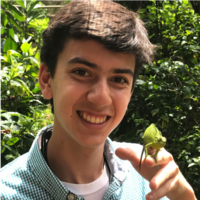Evaluating the Long-Term Viability of the Oral Rehydration Tube in Rural Uganda
Diarrheal diseases are the second leading post-neonatal cause of death among children under the age of five. Oral rehydration solution (ORS)—a solution made from a 1:1 molar ratio of salt and sugar—has been hailed as “potentially the most important medical advance of the 20th century” for its remarkable ability to combat the life-threatening dehydration associated with diarrheal diseases. Despite its effectiveness, only 2 out of every 5 children with diarrhea receive ORS, and ORS coverage remains lowest in regions where the risk posed by diarrheal diseases is the greatest. A major barrier to expanding ORS access has been the challenge of finding reliable and efficient methods of delivering pre-measured packets of ORS solutes to regions of the world with limited resources and infrastructure. In many developing countries, parents will travel great distances with their sick child in search of ORS packets only to find that they are unavailable, thus wasting precious time in the face of a disease that can become fatal within hours.
The ORTube is a tool that has been specially designed to allow individuals in developing countries to measure the exact amounts of salt and sugar that are needed to prepare safe and effective ORS with the resources available in their own communities. The ORTube has the potential to allow individuals to instantly prepare ORS for a sick child, thus allowing them to stay hydrated until their body is able to recover from the disease on its own or until they are able to reach more advanced medical care. This project aims to measure the long term integration of the ORTube into rural villages in Uganda as a first-line of defense against diarrheal diseases.
In September 2019, the nonprofits ORTube and Omni Med collaborated to coordinate the distribution of 500 ORTubes among community health workers within the Mukono District of Uganda. In February 2020, Omni Med led focused group discussions among community health workers who had received ORTubes to gather early feedback and to ensure that no unexpected outcomes had occurred. The ORTube team had planned to travel to Uganda during the summer of 2020 to collect data on the ORTube’s use, but this was no longer possible given the restrictions of the COVID-19 pandemic. Fortunately, the ORTube team was able to adapt to the situation and safely collect the necessary data on the ORTube’s use through a series of surveys and interviews conducted through their collaborators in Uganda.
It has been a tremendous pleasure to have been able to launch this research endeavor. I would like to thank Professor Chang-Muy, Professor Buttenheim, Omni Med, CURF, and the rest of the ORTube team for their continued support and contributions throughout this process. Please feel free to contact me at dubnerj@sas.upenn.edu with any additional questions.

Comments
Comments
Hi Jacob,
What a great poster. I learned a lot of new things and was surprised to see something we see as a side effect that can be easily resolved in the US be a major post-natal factor in Uganda. I hope the ORTube accessibility increases, or better yet a more widespread substitute is found.